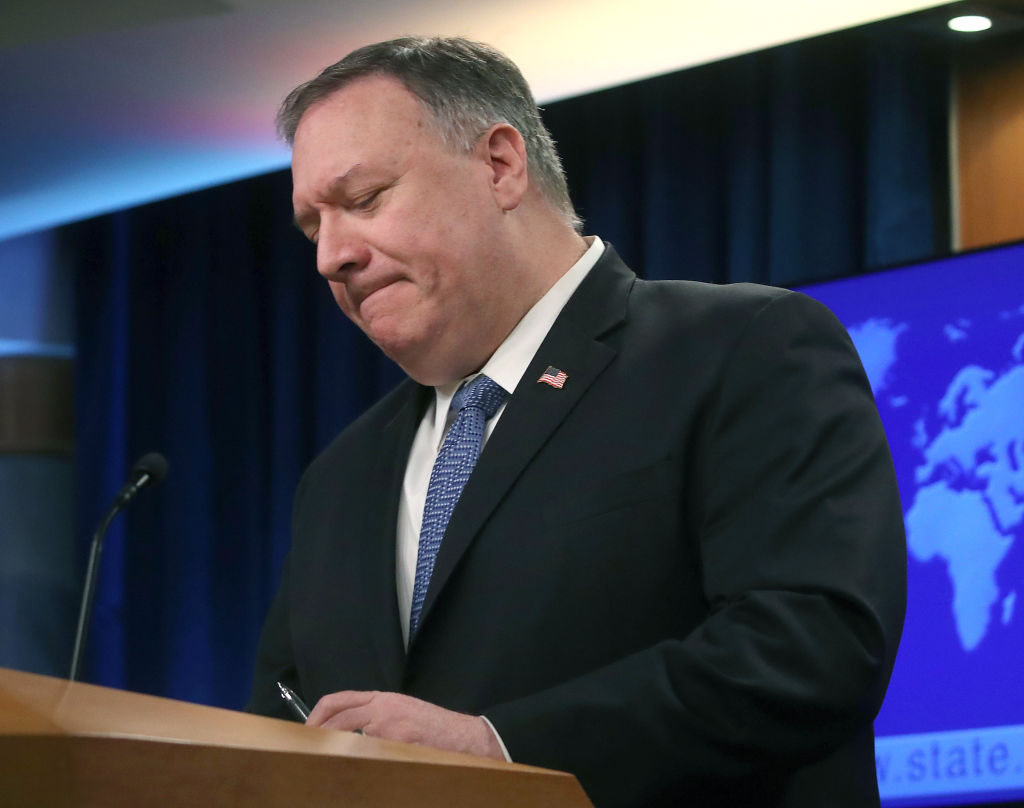The U.S.-Taliban peace deal has a secret annex, and lawmakers are not impressed


A free daily email with the biggest news stories of the day – and the best features from TheWeek.com
You are now subscribed
Your newsletter sign-up was successful
The U.S. has started withdrawing an initial 4,400 troops from Afghanistan in accord with a deal the Trump administration signed with the Taliban on Feb. 29, and Afghan President Ashraf Ghani issued a decree early Wednesday pledging to release 1,500 Taliban prisoners — short of the 5,000 the U.S. unilaterally committed Afghanistan to — as a goodwill gesture to start peace talks between the Taliban and fractured Afghan government. The U.S. military is even providing the Taliban with "very limited support" in its military campaign against the Islamic State, U.S. Central Command chief Gen. Frank McKenzie told the House on Tuesday.
The Taliban, meanwhile, is still attacking Afghan forces, and what constitutes "peace" in the U.S.-Taliban deal is spelled out in two secret annexes that members of Congress were first able to read over the weekend in a classified room. "The Taliban have read the annexes," The New York Times reported Sunday. "Nonetheless, the Trump administration insists that the secret documents must remain secret, though officials have struggled to explain why to skeptical lawmakers" who "express frustration with the lack of a mechanism for verifying compliance that they believe Secretary of State Mike Pompeo had promised."
Sen. Chris Murphy (D-Conn.), the top Democrat on the Senate Foreign Relations subcommittee on the Middle East, Central Asia, and counterterrorism, said that after a classified briefing, he's increasingly concerned "Trump got fleeced" by the Taliban. Rep. Liz Cheney (R-Wyo.) has also sharply critical of the deal and its secret annexes, and Rep. Tom Malinowski (D-N.J.), a former top State Department official, laid his concerns in a Washington Post op-ed.
The Week
Escape your echo chamber. Get the facts behind the news, plus analysis from multiple perspectives.

Sign up for The Week's Free Newsletters
From our morning news briefing to a weekly Good News Newsletter, get the best of The Week delivered directly to your inbox.
From our morning news briefing to a weekly Good News Newsletter, get the best of The Week delivered directly to your inbox.
"In principle, there is nothing wrong with the United States negotiating directly with the Taliban," Malinowski wrote, but "this is not a peace agreement. It is a fig leaf for withdrawal and for abandoning our Afghan allies," a "fairy tale about peace so that we feel less guilty about leaving, or so Trump can brag that he made a deal."
A free daily email with the biggest news stories of the day – and the best features from TheWeek.com
Peter has worked as a news and culture writer and editor at The Week since the site's launch in 2008. He covers politics, world affairs, religion and cultural currents. His journalism career began as a copy editor at a financial newswire and has included editorial positions at The New York Times Magazine, Facts on File, and Oregon State University.
-
 The 8 best TV shows of the 1960s
The 8 best TV shows of the 1960sThe standout shows of this decade take viewers from outer space to the Wild West
-
 Microdramas are booming
Microdramas are boomingUnder the radar Scroll to watch a whole movie
-
 The Olympic timekeepers keeping the Games on track
The Olympic timekeepers keeping the Games on trackUnder the Radar Swiss watchmaking giant Omega has been at the finish line of every Olympic Games for nearly 100 years
-
 ABC News to pay $15M in Trump defamation suit
ABC News to pay $15M in Trump defamation suitSpeed Read The lawsuit stemmed from George Stephanopoulos' on-air assertion that Trump was found liable for raping writer E. Jean Carroll
-
 Judge blocks Louisiana 10 Commandments law
Judge blocks Louisiana 10 Commandments lawSpeed Read U.S. District Judge John deGravelles ruled that a law ordering schools to display the Ten Commandments in classrooms was unconstitutional
-
 ATF finalizes rule to close 'gun show loophole'
ATF finalizes rule to close 'gun show loophole'Speed Read Biden moves to expand background checks for gun buyers
-
 Hong Kong passes tough new security law
Hong Kong passes tough new security lawSpeed Read It will allow the government to further suppress all forms of dissent
-
 France enshrines abortion rights in constitution
France enshrines abortion rights in constitutionspeed read It became the first country to make abortion a constitutional right
-
 Texas executes man despite contested evidence
Texas executes man despite contested evidenceSpeed Read Texas rejected calls for a rehearing of Ivan Cantu's case amid recanted testimony and allegations of suppressed exculpatory evidence
-
 Supreme Court wary of state social media regulations
Supreme Court wary of state social media regulationsSpeed Read A majority of justices appeared skeptical that Texas and Florida were lawfully protecting the free speech rights of users
-
 Greece legalizes same-sex marriage
Greece legalizes same-sex marriageSpeed Read Greece becomes the first Orthodox Christian country to enshrine marriage equality in law
